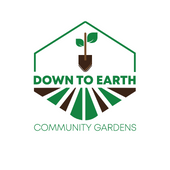
Americans consume about 285 million pounds of honey each year. Help your local bees out with simple gardening techniques!
Photo by Getty Images
According to Green Homekeeping (Mango Publishing, 2018) with the gentle guidance of eco-expert, Alice Mary Alvrez, you can start with baby steps and progress to an advanced eco-warrior! Start with these inspired ideas and the 52 simple ways to reduce your waste, eat organic, and keep toxins out of your home. Inside this helpful and hopeful guide, you’ll find tips for greening up all the areas of your life. Learn surprising facts about your impact on the environment and change your habits with do-it-yourself ideas.
Does this sound a little odd to you? Well, encouraging bees to hang around your yard may not sound reasonable, but the truth is that the declining bee population has recently become a hot-button environmental topic. No bees means no pollination, which will do some serious damage to the world (and our food supply).
Nobody is certain of what is causing the bees to die off, but the leading theory is the overuse of pesticides in commercial farming. Scientists are also looking at various other pathogens and diseases as potential causes. Regardless of the cause, bee populations are dropping drastically.
Plant Bee-Positive Flowers
The first and easiest thing you can do is to make sure your yard has a few bee-friendly types of flowers in it. The more food you can supply for our poor bee friends, the better off they’re going to be. Think about adding some of the following to your garden:
- crabapple
- blueberry
- coneflower
- asters
- lavender
- clover
- bee balm
- catnip
- chives
- sunflowers
- primrose
- borage
- cosmos
These are all gorgeous plants and their heavy pollen supplies will make the bees happy too. A shallow dish of water with some stones in it will also make a nice water source.
Nix the Insecticides
Chemicals that kill the pests in your garden are not going to help bees, whether you are targeting them or not. Keep the toxins out of your garden to make it a healthier place to live (for bees and yourself). Use more natural options for bug control, or just accept that you have to share your garden with a few extra insect guests.
Fact
Regardless of the cause, the bee populations are dropping drastically. There are roughly half the number of commercial bee colonies in the U.S. compared to 60 years ago.
Excerpted from Green Homekeeping© 2018 by Alice Alvrez. Published by Mango Publishing.
